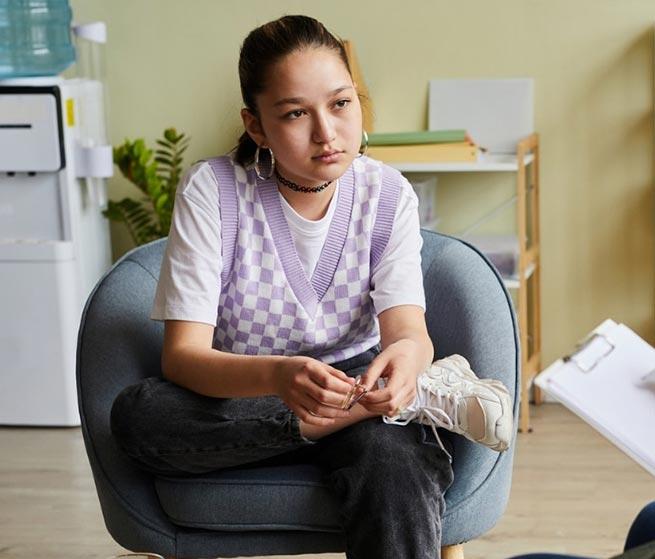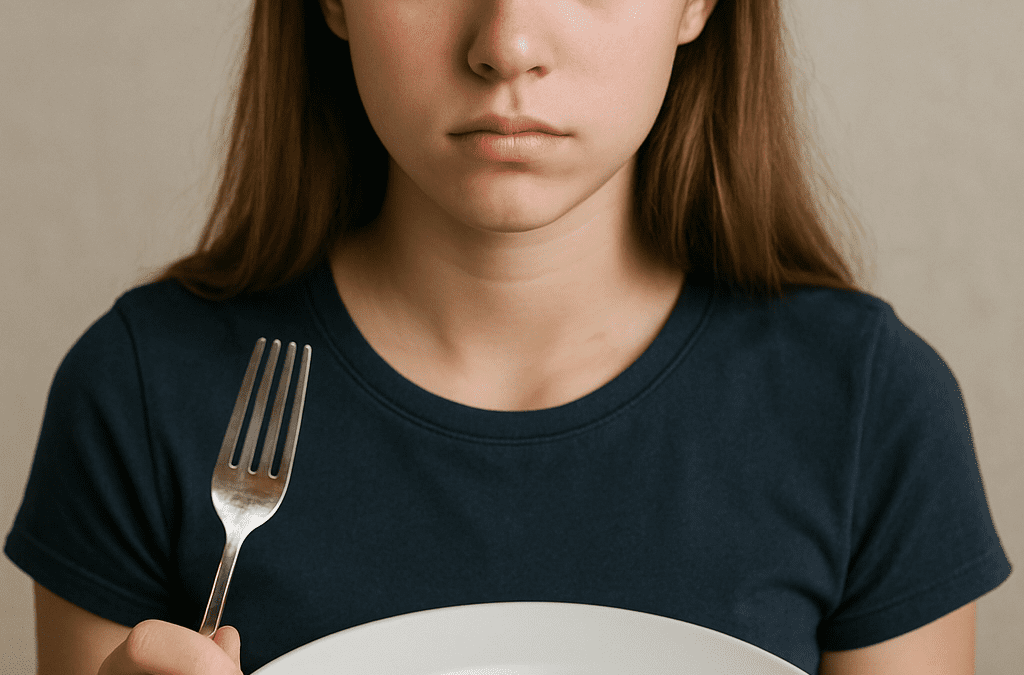Watching your teen struggle with food, weight concerns, or rigid routines can be overwhelming. You may wonder if it’s just a phase or something more serious—like an eating disorder. The truth is, early signs of eating disorders in teens often go unnoticed, especially in teens who appear “high achieving” or “in control.”
One effective treatment approach for certain types of eating disorders is Radically Open Dialectical Behavior Therapy (RO DBT). This evidence-based therapy is especially helpful for teens who struggle with overcontrol, perfectionism, and social withdrawal—traits commonly found in teens with restrictive eating patterns, such as anorexia nervosa.
What Is RO DBT?
RO DBT (Radically Open Dialectical Behavior Therapy) is a newer type of therapy designed for people who are overcontrolled—meaning they are emotionally inhibited, perfectionistic, and have difficulty opening up to others.
While standard DBT helps people who are emotionally impulsive, RO DBT is different. It focuses on:
-
Flexibility over rigidity
-
Authentic emotional expression over masking feelings
-
Openness and vulnerability instead of extreme self-control
Many teens with restrictive eating disorders fall into the overcontrol category, which makes RO DBT a strong fit.

Early Signs of Eating Disorders in Teens
It can be hard to tell when your teen is developing an eating disorder, especially if they’re quiet, rule-following, or “seem fine.” But early intervention is key. According to the National Eating Disorders Association (NEDA), here are some early signs of eating disorders in adolescents:
-
Skipping meals or eating very small portions
-
Obsessive calorie counting or “clean eating”
-
Excessive exercise, even when tired or injured
-
Strong fear of gaining weight
-
Withdrawal from social activities involving food
-
Rigid routines or food rules
-
Checking the mirror or scale frequently
-
Perfectionistic thinking and self-criticism
To view the full list of symptoms, visit NEDA’s official warning signs page.
How RO DBT Helps Teens with Eating Disorders
Teens with restrictive eating disorders often don’t respond well to therapies focused only on food or weight. That’s where RO DBT for anorexia nervosa and other restrictive eating disorders comes in. This therapy treats the underlying personality traits of overcontrol—like extreme self-discipline, emotional suppression, and social isolation.
In RO DBT, teens learn how to:
-
Loosen up rigid routines and thinking
-
Express emotions in a safe and healthy way
-
Be more open and connected in relationships
-
Trust themselves and others more
-
Take social and emotional risks in small steps
Treatment includes:
-
Individual therapy
-
Skills classes that teach openness, flexibility, and social signaling
-
Optional family involvement to support skill use at home
Research shows RO DBT can improve emotional expression, reduce perfectionism, and improve social connection in individuals with restrictive eating patterns. One study published on PubMed Central showed promising results for RO DBT in treating anorexia nervosa.
Why RO DBT Stands Out
Most therapies for eating disorders focus on weight gain, nutrition, or managing food behaviors. These are important—but RO DBT targets the underlying emotional and social patterns that drive the behavior.
This therapy may be right if:
-
Your teen struggles with perfectionism or rule-following
-
They’ve tried therapy before but still feel stuck
-
They have trouble expressing emotions
-
They feel socially isolated or misunderstood
-
Eating patterns are about control—not impulsivity
What to Do if You’re Concerned
If you notice early warning signs of an eating disorder, don’t wait. Eating disorders are serious, but they are also treatable—especially with early intervention. Talk to your doctor, therapist, or school counselor about an evaluation. Ask specifically about RO DBT for teens if your child seems overcontrolled.
Helpful Resources on RO DBT and Eating Disorders
Conclusion: RO DBT Offers Real Hope
If your teen is battling perfectionism, emotional shut-down, or disordered eating, they don’t have to face it alone. RO DBT helps teens build flexibility, connection, and a life worth sharing.
By addressing the root traits of overcontrol, this therapy opens the door to real change—not just around food, but in how your teen feels and lives.
Ready to explore RO DBT for your teen?
Contact us at the DBT Center (713-973-2800). We have therapists who specialize in RO DBT and treat eating disorders.

